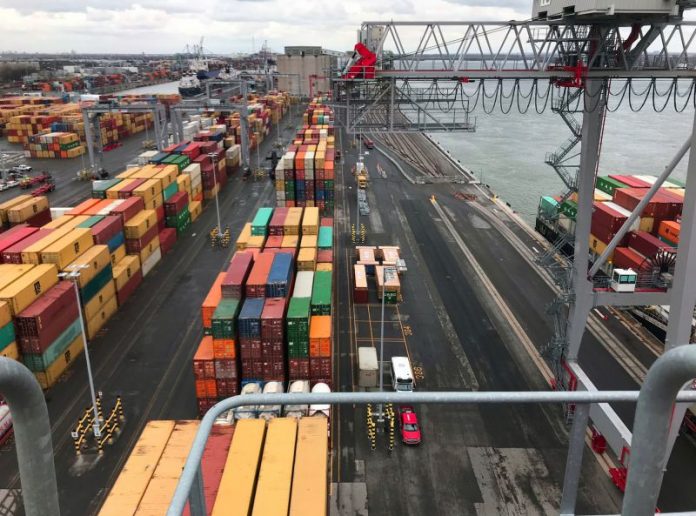Trade union officers have condemned the use of ‘scab’ labour to move cargo in Montreal following a reported 99% vote in support of strike action.
Employer’s representatives have said that one of the terminal operators at Montreal Port used “management staff to make things secure”.
“A company… used some executives to perform certain tasks, in accordance with the provisions of law, for safety purposes and to free the railways,” a port insider told Container News.
Unions saw the move as provocative and believe that the term “management” was being used loosely by employers as a method of bringing in scab labour to work the terminals.
Strike action was taken this week, according to the union, in support of negotiations to renew the collective bargaining agreement which expired on 31 December 2018.
“It was the second job action of limited duration in recent weeks as a tactical pressure by the 1,100 members of CUPE Local 375. The 40-hour work stoppage on 2 July only affected the two container terminals of Montreal Gateway Terminals (MGT), biggest container terminal operator in Canada’s second largest port,” reported Leo Ryan this week in Canada’s Maritime Magazine.
Longshoremen are continuing to work under the previous agreement while the dispute moved to the Canada Industrial Labour Relations Board (CIRBD) where the unions say the Maritime Employers Association (MEA), which advocates for the terminal operators, tried to prevent the unions from taking industrial action, in a case that lasted 18 months.
The CIRBD finally ruled in favour of the unions. According to MEA insiders the decision, handed down by the court a few weeks ago, maintains dockers’ right to strike. The MEA lawyers had argued that longshoremen were “essential workers” and should be prevented from striking.
Not surprisingly, the unions believe that the MEA was attempting to subvert the dockers’ rights under Canada’s Charter of Rights. In the event the CIRBD agreed with the unions and the ruling paved the way for this week’s action.
Nevertheless, employers say they believe, “negotiating is the best course of action to reach a mutually beneficial agreement and this option is favoured by all of its members.” The MEA insider went on to say, “The Maritime Employers Association is surprised and extremely disappointed by the ruling of the longshoremen union’s executive committee to use pressure tactics such as a strike.”
Asked by Container News whether going to court was the correct way to negotiate? The MEA representative suggested that there are a number of important issues to discuss, but that salaries were the critical issue in negotiations.
The average salary of longshoremen in Montreal is C$122,000 (US$91,200) with a further C$22,000 (US$16,445) in benefits, totalling C$144,000 (US$107,640).
“We have to put things in context,” said the employer representative, “What is the impact on broader society? Other livelihoods are in jeopardy, workers’ rights are important, but we are living in an age of uncertainty,” said the source, referring to the Covid-19 pandemic. Although the start of the court action predated the Coronavirus outbreak.
Union officials appear to be suspicious of the MEA and its membership and is very reluctant to speak with the media while strike action is in progress, as a result of the protracted court action taken by the employers.
Nick Savvides
Managing Editor







